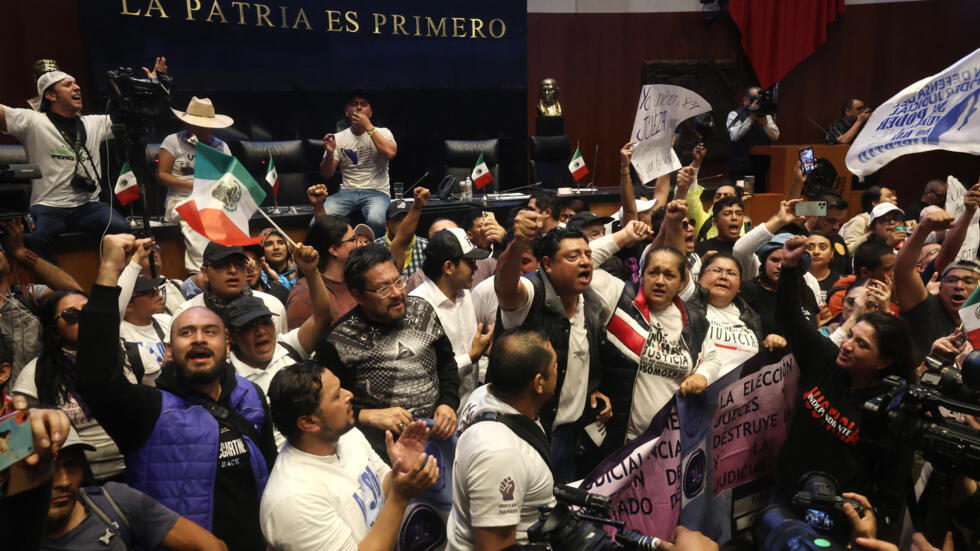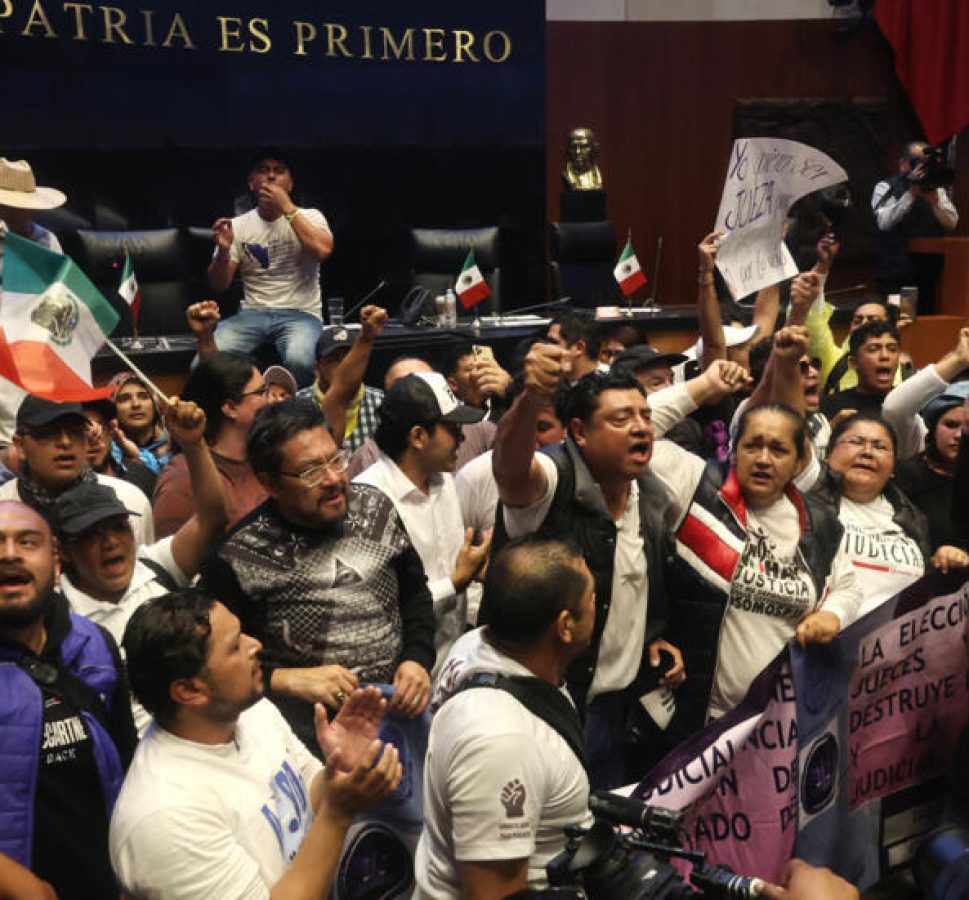
Controversial overhaul that will see judges elected approved 86-41 after debate interrupted by demonstrators arguing changes threaten judicial independence.
Senators in Mexico have approved a judicial overhaul pushed by outgoing President Andres Manuel Lopez Obrador after debate was briefly suspended by protesters who broke into the upper house in a bid to block the vote.
The Senate, dominated by Lopez Obrador’s ruling Morena party and its allies, approved the controversial reform with 86 votes in favour and 41 against in a marathon session on Wednesday, winning the two-thirds supermajority needed to amend the constitution.
Under the new measures, Mexico will become the world’s first country to allow voters to elect judges at all levels – including the country’s Supreme Court. Judges for the top court have typically been affirmed by the Senate from a shortlist submitted by the president.
Lopez Obrador, who wanted the bill approved before he is replaced by his chosen elected successor Claudia Sheinbaum in October, claims that the changes mean the judiciary will cease to be “at the service of the powerful, at the service of white-collar crime”.
But critics, including court employees and law students, say the plan could threaten judicial independence and undermine the system of checks and balances.
Norma Pina, the Supreme Court’s chief justice, said that elected judges could be more vulnerable to pressure from criminals in a country where powerful drug cartels regularly use bribery and intimidation to influence officials.
Opponents of the law have been holding protests for weeks.
During the Senate debate, hundreds of protesters stormed the chamber with pipes and chains chanting, “The judiciary will not fall.”
Lawmakers were forced to move to a former Senate building, where they resumed their debate as demonstrators outside shouted, “Mr Senator, stop the dictator!”
Lopez Obrador said protesters were protecting the interests of the political elite.
The reform, which has strained relations with countries such as the United States and Canada, allows the popular election of more than 6,500 judges, magistrates and ministers.
It also slashed the number of Supreme Court judges to nine from 11, reduced the length of their terms to 12 years, abolished a minimum age requirement of 35 and halved necessary work experience to five years, among other things.
Elections to replace a majority of judges will be held in June 2025, with ballots cast for the rest in 2027.
Several candidates per role will be nominated by Mexico’s executive, legislative and judicial branches before being narrowed down by a technical committee.
Opponents say the high number of positions up for vote will make it difficult for citizens to be well-informed.
Pina said last week the Supreme Court would discuss whether it has jurisdiction to halt the reform, though Lopez Obrador has said there is no legal basis for it to do so.
The reform will now be voted on at state-level congresses, where the ruling coalition has the votes to see it through. It will take effect once published in Mexico’s official gazette.
The measures were passed last week in the lower house by ruling party lawmakers and their allies, who were forced to gather in a sports centre because access to Congress was blocked by protesters.
US ambassador Ken Salazar said last month the changes could pose “a major risk” to Mexican democracy and enable criminals to exploit “politically motivated and inexperienced judges”.
Margaret Satterthwaite, the United Nations special rapporteur on the independence of judges and lawyers, voiced “deep concerns” about the plan, calling access to an independent and impartial judiciary “a human right essential for protecting rights and checking power abuses”.
Separately, US-based rights group Human Rights Watch had urged lawmakers to reject what it called the “dangerous proposals”, saying they would “seriously undermine judicial independence and contravene international human rights standards”.






